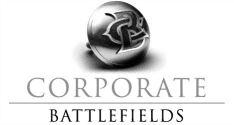How commercial activity can benefit from Experiential Learning
What is experiential learning, and why is it one of the most effective tools for coaching senior management?
‘Organizations, businesses, or schools who invest in training for their employees or students are trying to protect their “human capital.”’ – Smith & Rosser (‘Leadership Development through Experiential Learning’)
In the world of Human Resources, there are hundreds of choices when it comes to addressing the training needs of a business. This is especially true of soft-skill training. The benefits of successful training, whether through LMS or training days, can be tangible and extraordinary investments. The need to train is well established, however often training is unfocused. HR Directors need to target their needs in order to sift through the generic training available that won’t engage their employees.
What is experiential learning?
Experiential learning is a simple concept. How better to learn a skill than by doing it? In practice, experiential learning attempts to reflect and recreate situations, and place people into these simulations. It is the nitty-gritty, hands on approach and when applied correctly can be a powerful tool in engaging, motivating and educating your people in precisely the situations they are likely to be in. It encourages them to think outside their work silos and engage with each other and the business’ true aims and vision.
Generic training within a familiar location or conference centre stifles creativity, innovation, and is rarely relevant to client specific challenges. Getting out of the Office make events memorable, and allowing the barriers of corporate culture to be thinned or reduced, which results in a better understanding of the people involved, both from the bottom up and top down.
The key to whether or not experiential learning can be beneficial to your business can be broken down into two points:
- Have you been transparent in describing your issues to the training provider? What is really keeping you up at night as a CEO? Alternatively, there might be issues as a HR Director you know are not being addressed. This brutal honesty gambit works both up and down the hierarchy, and is essential to getting the most out of your training. Often one of the greatest weaknesses of leaders is their ability to self critique, and they must be prepared to hear the opinions of their subordinates.
- The quality of the training provider and their sector experience. At Corporate Battlefields, we talk a lot about the role of the Business Facilitator as the single most important person on any training event. The trust between the trainer and trainee is essential. You need to be prepared to listen and engage with their experience.
If you can provide the honesty and trust required, experiential learning will be a shot of adrenaline for your team, and a significant boost to your business ventures.






